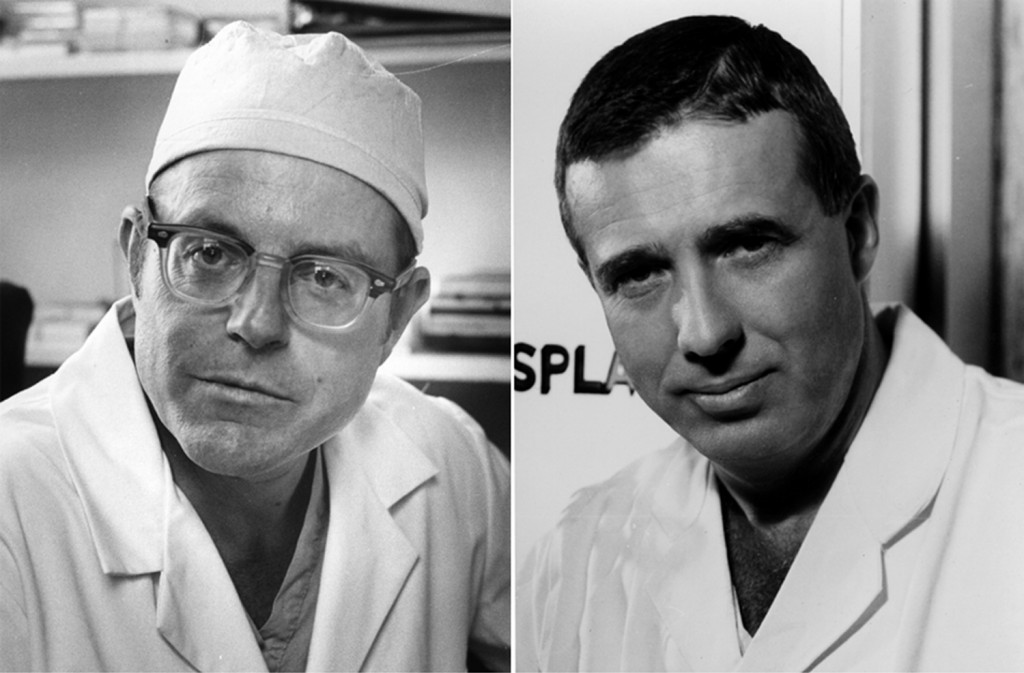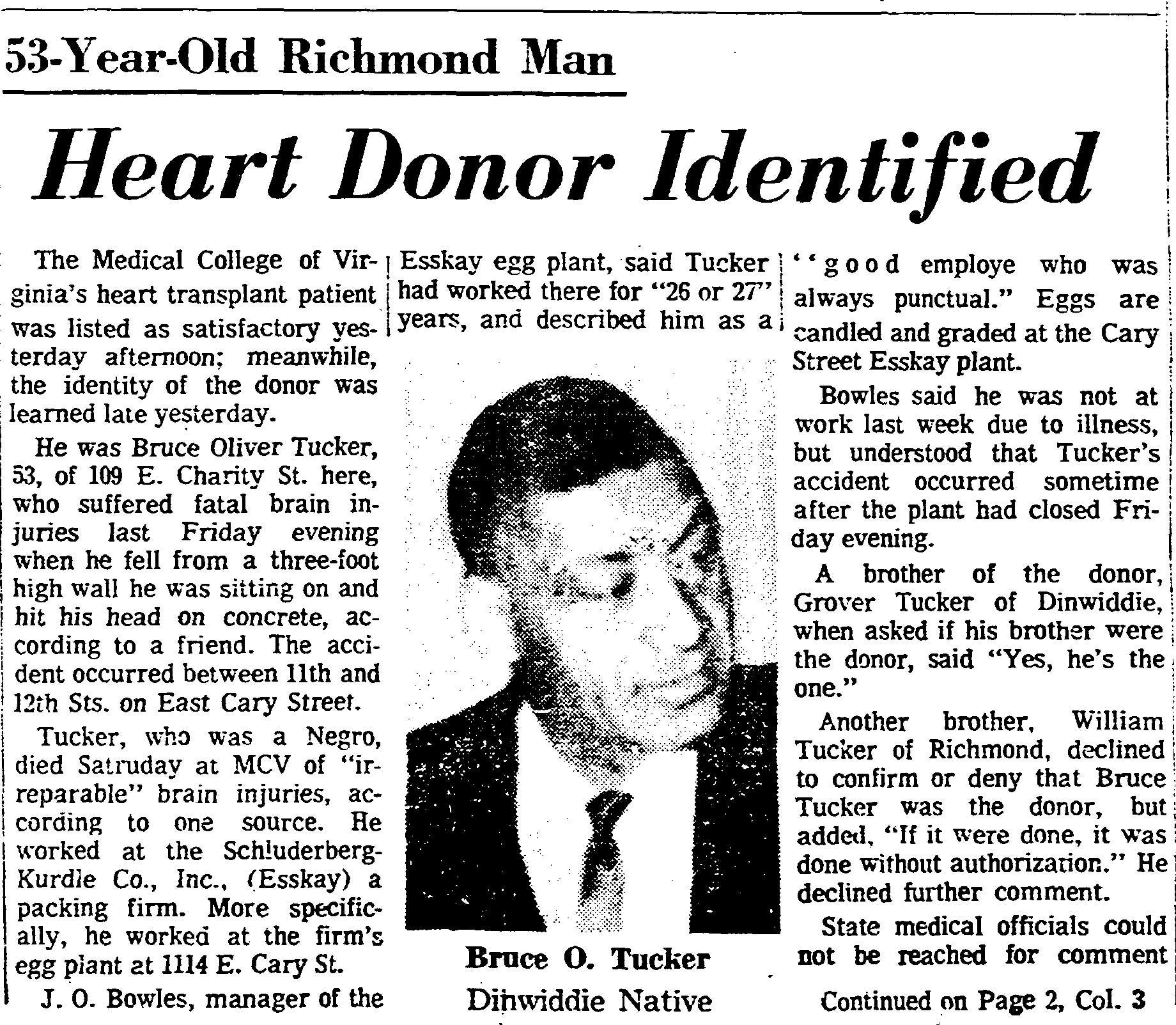Medical Research and the First Heart Transplant in the South
The first human organ transplant, a kidney, took place in 1954. By the 1960s, the human heart transplant was on the medical horizon. On December 3, 1967, a large team led by cardiac surgeon Christiaan Barnard, who had trained in Richmond, VA under Drs. David Hume and Richard Lower, performed the world’s first human-to-human (allogeneic) heart transplant in Capetown, South Africa. On May 25, 1968, an MCV team led by cardiac surgeon Dr. Richard Lower performed the first human-to-human heart transplant in the South. This was the sixteenth heart transplant in the world. The heart of African American laborer Bruce Tucker, who had suffered a severe head injury, deemed by physicians of the time to be an unrecoverable injury, was transplanted into Joseph Klett, a white businessman. As recent studies reveal, neither Bruce Tucker nor his family consented to the transplant.
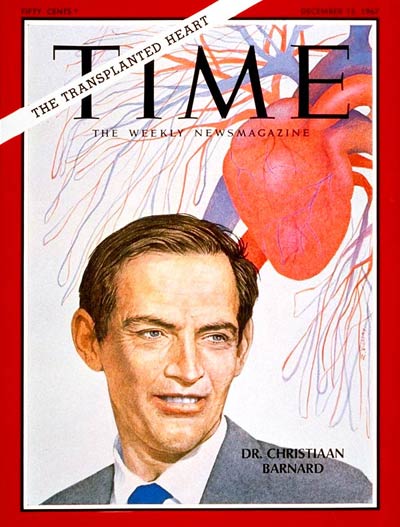
Dr. Christiaan Barnard on the cover of Time Magazine.
Source: Time Magazine
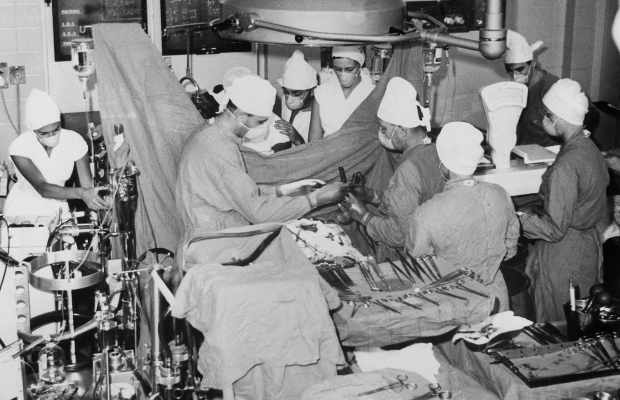
Christiaan Barnard performs the first human heart transplant at Groote Shuur Hospital, Cape Town
Source: British Heart Foundation
Learning Objectives
- Understand the significance of surgeons David Hume and Richard Lower in kidney and heart transplantation in the U.S., especially in the first heart transplant in the U.S., which took place in Virginia in May 1968.
- Identify the social inequities surrounding Bruce Tucker and what led to his role in the first heart transplant in the South.
- Learn about the first organ transplant in the South in the historical context of racial inequality, segregation, and African American skepticism in the 1960s regarding heart transplants.
NOTE: Users who are pursuing the Unlocking Health Equity badge, credit through the VCU Health System DEI learning requirement, or those who would like to claim continuing education credit must complete and submit the Reflection Activity at the bottom of this page. Please visit VCU Health Continuing Education for more information.
Learning Materials
This learning module provides readers with a collection of videos and readings designed to teach about the first heart transplant in the South, performed at MCV in Richmond, VA in 1968. It also prompts questions about racism, bioethics, and medical research. We ask that you spend an hour reading and viewing the materials below.
Watch this video (especially minutes 10:15-35) in which VCU archivist Jodi Koste has a conversation with author Chip Jones about his recent book, The Organ Thieves: The Shocking Story of the First Heart Transplant in the Segregated South (2020). They discuss the first heart transplant in Virginia, the background of the organ transplant program at MCV, and the community context in which it developed. The talk was hosted by VCU Libraries in February 2021 through their Community Zooms program. https://www.youtube.com/watch?v=l0lXx-PYafY
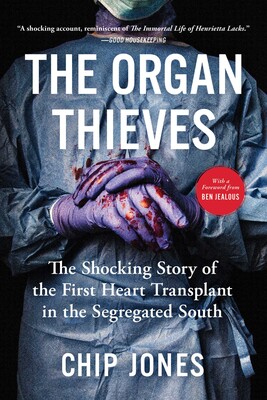
Source: Simon & Schuster
Resources
We ask that you spend the hour reading and viewing the resources above and viewing as many of the linked resources below as possible prior to completing the reflection activity. Reflections will be evaluated, and individuals may be asked to resubmit if answers are incomplete or do not meet the length requirement.
SUGGESTED BOOKS:
The Racial Divide in American Medicine: Black Physicians and the Struggle for Justice in Health Care (2020) by Richard D. deShazo
Skimmed: Breastfeeding, Race, and Injustice (2020) by Andrea Freeman
Just Medicine: A Cure for Racial Inequality in American Health Care (2015) by Dayna Bowen Matthew
Against Their Will: The Secret History of Medical Experimentation on Children in Cold War America (2013) by Allen M. Hornblum, Judith L. Newman, and Gregory J. Dober
The Red Market: On the Trail of the World’s Organ Brokers, Bone Thieves, Blood Farmers, and Child Traffickers (2011) by Scott Carney
The Immortal Life of Henrietta Lacks (2010) by Rebecca Skloot
Medical Apartheid: The Dark History of Medical Experimentation on Black Americans from Colonial Times to the Present (2006) by Harriet A. Washington
SUGGESTED VIDEOS:
Lecture by Dayna Bowen Matthew at Baker Institute, Rice University. “Just Medicine: A Cure for Racial Inequality in the U.S. Health Care.” At this event, Dayna Bowen Matthew, William Matheson and Robert M. Morgenthau Distinguished Professor of Law at University of Virginia School of Law, explores strategies for reducing health disparities: https://www.youtube.com/watch?v=hRKRfcqEXLY
Black News Channel: Author of "The Organ Thieves," Chip Jones chats with BNC Anchor Brittany Jones about new book, https://www.youtube.com/watch?v=w_tMDxDXo8E
Author Chip Jones on the history of American healthcare in the segregated South (on Virginia This Morning) https://www.youtube.com/watch?v=k5fOyobZ-rA
South Florida PBS interview with Chip Jones, https://www.youtube.com/watch?v=PbKcxyyAZCg
Time to reflect on what you have learned
To get started, click here.
Reflection activity directions
Users who are pursuing VCU’s History and Health; Racial Equity badge, credit through VCU Health System DEI learning requirement or those who would like to claim continuing education credit must complete and submit the Reflection Activity. The form asks the user to submit basic biographical information (e.g., name, department) and to answer one of the following 3 prompts. Your response must be a minimum of 250 words. Reflections will be evaluated, and individuals may be asked to resubmit if answers are incomplete or do not meet the length requirement.
PROMPT OPTION 1: How do the readings encourage you to change how you treat patients or interact with clients? Describe a specific interaction with a patient or client and how you might handle it differently in light of this module’s readings.
PROMPT OPTION 2: Reflect on how Chip Jones’ Organ Thieves: The Shocking Story of the First Heart Transplant in the Segregated South connects the story of Bruce Tucker to the foundation of American medicine in the 19th century (which included documented instances of grave robbing and reliance of enslaved bodies for medical advances) and systemic racism in the U.S. Consider the relevance of the plaque “Birthplace of Cardiac Transplantation” on the MCV campus and its elision/erasure of Bruce Tucker’s name.
PROMPT OPTION 3: How does Bruce Tucker’s treatment by the medical establishment in 1968 connect to the care that African Americans and other minoritized communities have received during the COVID-19 pandemic?
